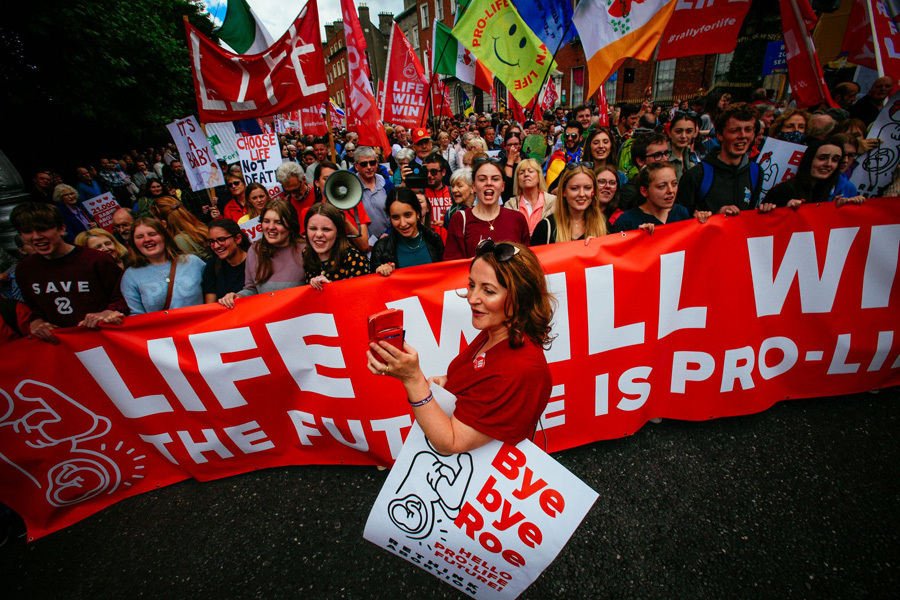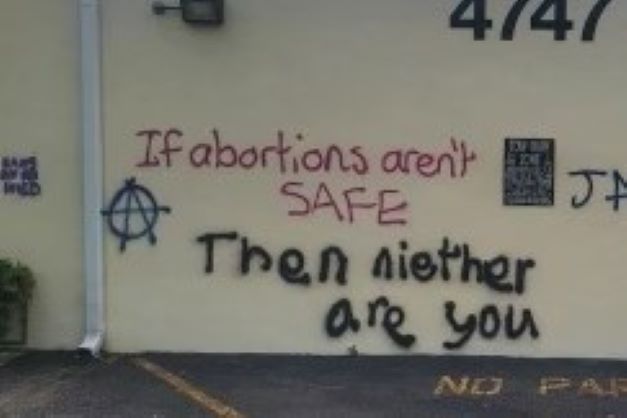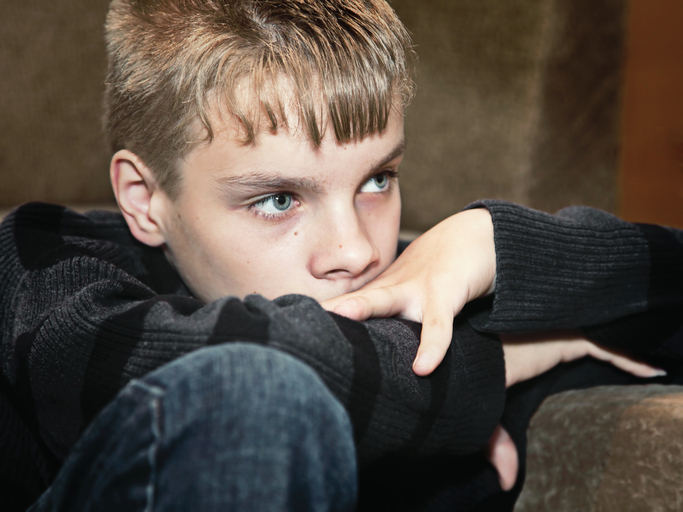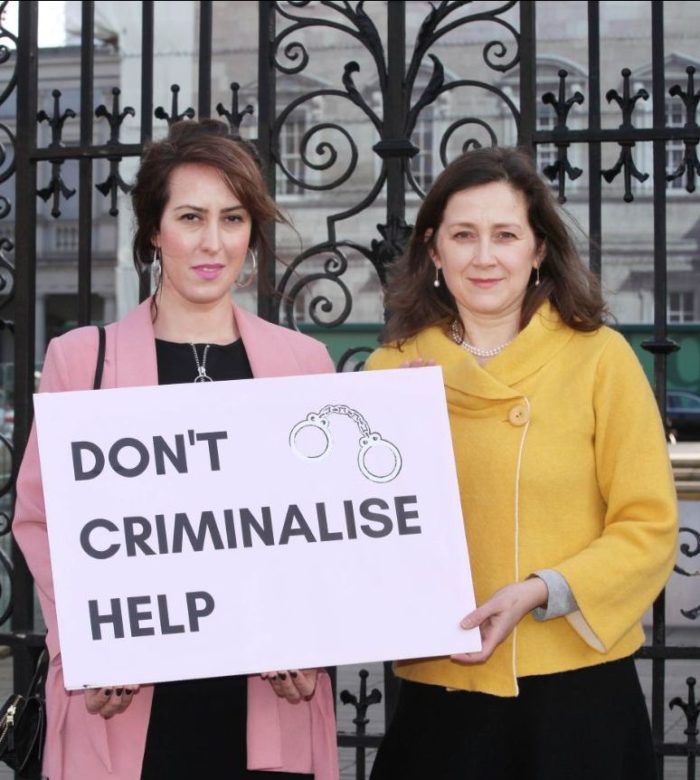
Organisers said the chief aim of the Rally For Life was to urge the public, and the Government, to rethink abortion.
A campaign to retain the three-day waiting period before undergoing an abortion was launched at the rally.
Megan Ní Scealláin, a spokesperson for the Life Institute, said: “Voters were guaranteed that women would have a three-day period to reflect between a first abortion appointment and the doctor giving the abortion pill, and it is appalling to see abortion campaigners now push to have that time to think scrapped.
“We know from figures released to Carol Nolan TD that between 800 and 1,000 women did not proceed with an abortion after that initial appointment.
“Scrapping the requirement for those three days to think might mean another 1,000 abortions a year.”
Pro-life TDs, Independent Carol Nolan and Peadar Tóibín of Aontú, also addressed the rally.

A big majority of people do not believe biological men who who identify as women should be allowed to compete in female sports, according to the latest Sunday Independent/Ireland Thinks poll.
When asked if transgender women should be allowed to take part in sporting activities against other women, 68pc said no, with 17pc saying they should, while 15pc were unsure.
The figures reveal differences in attitudes among respondents, depending on age and political allegiance.
However, significantly more people agree than disagree with the statements that “a transgender man is a man” and “a transgender woman is a woman”.
When asked if they believed “a transgender man is a man”, that is, a person who is born female but identifies as a man, 48pc said they either strongly agreed or agreed, while 29pc either strongly disagreed or disagreed.
There was a similar response when respondents were asked if they believed the statement that “a transgender woman is a woman”.

Nearly three quarters of the British public support a parliamentary inquiry into assisted suicide, polling has revealed.
Research by YouGov found that 74 per cent were in favour of re-examining the law whereby medically-assisted suicide and euthanasia are illegal.
The polling was released before a debate on the issue in the House of Commons today which was secured after a petition lodged by Sarah Wootton, of Dignity in Dying, received more than 155,000 signatures.
She is looking for a change in law to facilitate assisted suicide and believes the YouGov poll shows a desire for change among the public.
Campaigners against such a move say that existing laws adequately protect vulnerable people. They claim it would be impossible to ensure that a patient’s wish to die was truly free from outside pressures.
In 2015 MPs rejected plans for a right-to-die law change for some terminally ill adults in England and Wales.
Last year the British Medical Association dropped its long-standing opposition to a change in the law after a debate at its annual representative meeting. It instead adopted a neutral position.

Faith plays a crucial role in living a happy life, Harvard Professor and social scientist Arthur Brooks has said.
There’s a lot of research on the main happiness habits but faith and life philosophy are the first factors to be considered, Professor Brooks told The Irish Catholic newspaper.
“What you do find is that people who don’t pay attention to things larger than themselves, the transcendental questions, the big questions of life and the universe, those people tend to be a lot less happy because they’re way too focused day to day to day on the quotidian trivialities of their life.
“You know, we need relief and perspective, and that’s why the transcendental….is so critically important,” Prof. Brooks said.
Much modern discontent, particularly the “loneliness epidemic” has fear at its root, Prof. Brooks said.
“Loneliness is at epidemic proportions, not just because of the coronavirus epidemic. We started to see these problems coming much earlier,” he said.
“The biggest problem…loneliness obviously is a lack of love. It’s a lack of love in your life. The main reason that we have a lack of love in our life is because we have too much fear. Fear and love are opposites,” which is a principle to be found in religious literature, Prof. Brooks said.

Attacks on Catholic churches and pro-life pregnancy centres have been reported in numerous states across the USA in the wake of the Supreme Court’s decision to overturn Roe v Wade.
West Virginia, Washington, Virginia, Louisiana, Colorado, California, Texas, Florida, New York, and Indiana all recorded separate incidents.
St. Patrick Catholic Church in Philadelphia was defaced with pro-abortion spray paint on June 25, which said “Abort the church”.
All Saints Catholic Church in Portland, Oregon had its sign defaced with pro-abortion graffiti on the same day.
A photo of the vandalism shows the words “If abortions aren’t safe, neither are you! -XOXO Jane.”
A pro-life Pregnancy Resource Clinic in Yuba City, California was vandalised two days later.
The clinic had one of its windows smashed by what seems to be one perpetrator according to video footage, the clinic’s executive director Kristen Bird told CNA.
Video shows the perpetrator throwing three rocks at the window until it broke.
The Pregnancy Resource Center of Salt Lake City was vandalised on June 24, within hours of the release of the Dobbs decision.
A sign was taped to the front door that read “If abortions aren’t safe neither are you,” and on the backside, “Women are fragile, not like a flower, but more like a bomb.”
Stickers were left on the building, one of which that said “Jesus loves abortion”.

Four Catholics schools were subjected to a “trial by media” by being publicly named and shamed by a Government minister, according to a Catholic primary schools’ body.
The minister for special education, Josepha Madigan’s decision to put schools in the spotlight over disputes regarding provision of special education classes was “strongly objected to” by the Catholic Primary Schools Management Association (CPSMA), along with many other stakeholders.
“The Government would be far better advised to look at the very real challenges faced by schools opening special classes rather than subjecting some schools to trial by media,” Seamus Mulconry, CPSMA secretary general, told The Irish Catholic.
The minister’s plan was announced in a meeting last Thursday with the National Council for Special Education, when the CPSMA and other schools’ bodies were told that a number of schools were to be publicly ‘named and shamed’.
The Catholic management body along with “many other stakeholders present… strongly objected that such a move would be unfair and unhelpful”, Mr Mulconry said.

Euthanasia should be an option for ill children between the ages of one and 12 who are in ‘unbearable pain’ and for whom there is no hope of a cure, Health Minister Ernst Kuipers has said in a briefing to MPs.
Euthanasia for terminally ill babies is not part of the original law but stems from a separate ‘protocol’ drawn up by paediatricians and the health and justice ministries dating from 2005.
Kuipers, acting on the advice of paediatricians, is proposing a similar protocol for children under twelve for whom no formal criteria have been created so far. He has proposed seven criteria including that the child’s suffering is ‘unbearable’ and there is no possibility of a cure or a treatment to alleviate the pain. Palliative care doctors say almost all pain can be controlled today.
Kuipers proposal is currently out to consultation. He will present the final concept in October, when he will also announce when the protocol will come into force.

The number of people in England and Wales aged 65 and over has for the first time surpassed the number of children aged under 15, according to the first results of the 2021 census in a sign of how fast the population is ageing. Populations throughout Europe, including Ireland, are getting older as a demographic crisis takes hold.
The news comes only weeks after the population of Ireland was announced as 5.1 million, its highest level in a census since 1841.
Across the Irish Sea, a 20% surge in the number of people aged 65 and over in the past decade drove the population of England and Wales to a historic high of 59,597,300, the Office for National Statistics recorded 11.1 million people aged 65 and over compared with 10.4 million people aged under 15, tipping a balance that has always favoured the young.
The number of infants aged four and under was one of the few categories where the population fell but the over-90 population broke through the half a million mark, rising to 527,900 people.

Pro-choice campaigners and politicians want to introduce 150-metre zones around facilities providing abortion so prayer vigils, offers of help, and pickets would all be banned.
At a meeting on Monday, local authorities retreated from their previous opposition to the use of bylaws to move the protests. Councils have more flexibility than the national Government around where people are allowed to gather and it is thought that bylaws could be used as a temporary measure while national legislation continues to be examined.
Susan Aitken, the SNP leader of Glasgow city council, said she was prepared to make her authority a national test case.
Concerns have been raised about legal issues surrounding the introduction of national legislation, such as human rights and the ability to protest. Nicola Sturgeon again signaled support for a national law, although that could take years to resolve those issues.

The past seven days were among the deadliest for Catholic priests and religious in recent years, with one violent murder every 33 hours.
Monday, June 20, saw the killing of two Jesuit priests in Mexico.
On Saturday, June 25, Sister Luisa dell’Orto, a Little Sister of the Gospel of Saint Charles de Foucauld, was killed in Port-au-Prince, the capital of Haiti.
In between those murders, two more took place in Nigeria.
Also on Saturday, June 25, Father Vitus Borogo was murdered in Kaduna State, the same region where two churches were attacked a week earlier. The murderers are believed to be members of the Islamic terrorist organization Boko Haram.
The 50-year-old priest was murdered at a farm, during what the chancellor of the diocese defined as a “raid by terrorists.”
On Sunday, June 26, Father Christopher Odia was murdered after being kidnapped from the Diocese of Auchi, Edo State, in the southern region of Nigeria. He had been abducted on his way to Sunday Mass at St. Michael Catholic Church Ikabigdo.
He was 41 and ordained a priest in 2012.
According to Open Doors International, an NGO that tracks Christian persecution globally, in much of northern Nigeria, Christians live under the constant threat of attack from Boko Haram, the Islamic State West Africa Province (ISWAP), Fulani herdsmen, and other criminals who kidnap and murder at will.
While all citizens of northern Nigeria are subject to threats and violence, Christians are often specifically targeted because of their faith — ISWAP and Boko Haram want to eliminate the Christian presence in Nigeria.